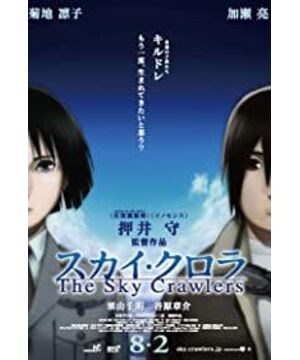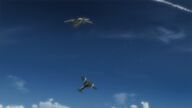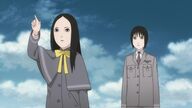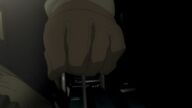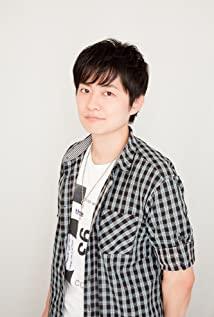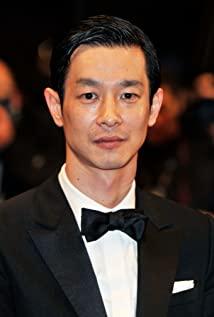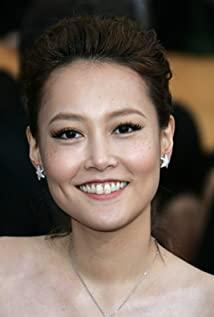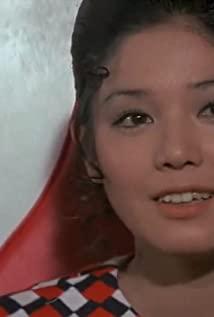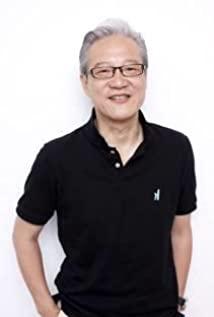(original "Secondary Mania")
Business and Art
"Unlike the director who is often applauded by millions of people, my work can only have 10,000 viewers, but 1 million viewers each watch it once, and 10,000 spectators watching 100 per person, as are 100 million people. "
- Mamoru Oshii
Mamoru Oshii recently been not comfortable, allegedly suffered a" menopausal syndrome ", physical condition, mental condition of a substantial decline, as This specially went to practice martial arts to restore the state. In the first half of his life, he was burdened with titles such as "the godfather of boring films", "original smasher", "the enlightener of Wachowski's 'sisters and brothers'", etc. The audience likes to hear about it” and other correct routes are missed. Although the number of duck fans has grown steadily, in addition to the animation house, it is a movie house, and it is about to move closer to the audience of the Soviet masters (it should be said that it is more reliable than the group of Dayou Keyang). Watching Mr. Miyazaki make one after another winning box office masterpieces under the guise of retirement, Oshii felt depressed. The junior Hosoda Shouda, who was kicked out of the Jeepli, relied on the youthful tear-jerking "Girls Through Time and Space" to open up the market for non-animation fans, and it made the old duck feel that he was no longer young. If you don't try more possibilities now, don't take it Say what you want to say, I'm afraid it's too late.
Oshii has made too many boring films in the past, and the commerciality is only reflected in the trailers that are very combative and easily misunderstood. "The Movie 1" is extremely boring. The most amazing part is that after the climax of the martial arts drama, there is a 10-minute literary drama, and the picture does not move. The audience who are used to watching commercial movies seems to be hit with a sap in the front and the back. Maybe many viewers will raise objections, such as "I didn't sleep and I'm so excited that my buddies are watching high", etc. This is all because Duck's name has spread all over the Internet, and new audiences know what to expect, the plot Analysis is also everywhere. In the 1990s, when the ashes first watched the animation, they watched one and slept the other. The film was screened at the Sino-Japanese director exchange meeting, and the writers, directors, and writers in the house were all sleeping, while the boring film "The Tranquil Sea That Summer" was screened at the same time, and no one was sleeping.
Oshii wants young people—those who can represent Japan’s future—to understand his film and the message he wants to convey: "I have something I want to convey to today's young people." To do this, he needs to shoot A film that is more commercial, and the kind of commercial that appeals to young people.
In addition to the director, the voice cast is what determines the appeal of an animation. In the past, although Oshii used professional voice actors for dubbing, they were all dubbed voice actors for live-action dramas, unlike other animation directors who used pure animation voice actors. This time, a large number of actors have been used for marketing purposes. The dubbing of the protagonist is a popular young student, and the other one is dipped in the Oscar light, and they all have box office appeal. (Another reason for choosing them is that they have starred in overseas movies and have a high level of English, but Oshii may have forgotten that Kikuchi played a deaf and mute man in "Babel Tower"...) Many people are quite critical of the performance of these two , In fact, they are all psychological effects, not to mention the level is enough, even if the level is not enough, they are also more in line with the needs of the film than the animated voice actors. As for Kikuchi's impression that is deeper than Kase's, it's not so much a question of level as a question of line arrangement and role positioning.
In addition to dubbing, the biggest revolution in "Air Killer" is actually the screenwriting. It's not that Ito Kazuno can't write about love, but the young audiences about the love he wrote are definitely not in a good mood. This time, according to the tear-jerking movie list, Oshii found the screenwriter Ito Chihiro (the screenwriter of "Cry Out Love in the Center of the World" and "Spring Snow"), the screenwriter of Yukisada. It's not that after this screenwriter who is the same age as Oshii's daughter, the story of Oshii can make the big girl and the daughter-in-law in the theater burst into tears, but the script must be much gentler than the traditional Oshii film, and it is normal. many. (By the way, Duck's son-in-law is Otichi, and his work is comparable to Oshii in a negative sense)
After some Xingjingxun-style modifications, the love of the Eternal Sons has a completely different performance from the character of Oshii. Oshii's previous works all included love, but they were all boring, literally "nothing to say". The conversation between Motoko and the two boyfriends is like science and education, and the love between ASH and the bald head is only left to draw guns. The only one that can be called love and is missed by Oshii Fan to this day is the love between Nagumo and Takuzhi, at the cost of Gotou's loss of love. Compared to this success based on "raping the audience's feelings, NTR's main characters", "Air Killer" is too normal and too commercial. In order to highlight the main line of love, Ito Chihiro even modified the story structure. In "Mobile Police 2", exposing the enemy's conspiracy is the main, and Nagumo's emotional line is the auxiliary. According to this line of thinking, the clue to the story of "Aerial Killer" is the mystery of the identity of the Eternal Son, which should be solved little by little through Hannan's point of view. However, this part is completely absent from the actual story, and the suspense of the Eternal Son is lightly resolved by Sasakura's explanation and Mitsuya's whining. The focus of the story is on Hannan and Kusanagi, why Kusanagi is obsessed with Hannan, and they treat each other coldly when they are alone, and whether Hannan's feelings for Kusanagi are love or not, these constitute the driving force of the story. .
Moreover, Oshii prepared a lot of physical contact for the love scene of "Aerial Killer", "Two People's Rabbit Lishu (Karuizawa)", fired wild guns in Krakow, and finally cried with each other . This is unimaginable in the past Oshii movies. Nagumo and Tuozhi only held their fingers together for physical communication. This unsalty and not bland scene has already made many duck fans climax.
In other respects, Oshii also worked hard. The air battle at the beginning and the duel at the end are absolutely shocking. Relying on the last magic stick's incomparable aerial maneuvering, "Aerial Killer" has won a place in the "war film" field of animation history, and it will definitely be a memory that countless audiences relish the same as Kusanagi's demolition of tanks.
Since it includes so many commercial elements, the "Air Killer", which is played, cried and made empty, must be very entertaining. So, what happened to this boring movie we watched?
That's right, Oshii said at the beginning of the production that this time it must be commercial and must attract young people. However, business is Kubrick-style business, and the young people it attracts are also literary and artistic youths. If you believe in the commercial promise of a literary middle-aged person who sells difficult concepts to the audience and the host in person, then the author recommends watching the documentary about the old man Miyazaki, where there is not much talk of commerciality, only the passion that is about to be revealed.
Excluding Kawai's music, which has been serving blockbusters, "Air Killer" is a good "anti-commercial" teaching example. The signature of the film is air combat. There are 5 air battles in the whole film, but the duration is very short. The big air attack that was brewed for 20 minutes was called and closed 3 minutes after the start of the fight. The protagonist's landline did not have many shots. Only the final battle. Although the single battle time of "Battle Fairy Yukikaze" is not much, it is an OVA of 20 minutes per episode! What is air combat? Just look at "The Gate of Cosmic Cowboy Paradise". It's an action sci-fi film based on martial arts and gunfights, and the air combat time is longer than "Aerial Killer"!
There are many love scenes in the film, but passion scenes are very problematic. The nude scenes were deleted to the point of after-the-fact—and they weren’t Kusanagi’s nude scenes. The villa scene was only filmed, and the close-up of the Kharkov field battle was in hand. The last passionate scene is the most telling, all the teenagers hugged the girl and said, "You must live!" The pair in "Princess Mononoke" looked energetic, but the pair in "Aerial Killer" was extremely vicissitudes.
In fact, the reason for this result is very simple. For Oshii, the commercial element of the film is the form, and the form can only serve the expression of the theme - this is the decisive difference between Oshii and most directors. Hearing the truth is not a good idea, and in the film that emphasizes the most commercial, Oshii also thinks about the theme first. As a commercial film, "Aerial Killer" had to fail, but as a film by Mamoru Oshii, "Aerial Killer" officially began here.
——————————————————
Original and adaptations
Mamoru Oshii's most famous nickname is "Original Crusher". No matter what work, when it gets to him, the original author can fall down. Earlier, Takahashi Lafayette was stunned by Fuxing Theater 2. Even if it is an original work without the original, the duck has to toss FANS, and the Mobile Police Theater 2 can be said to have completely subverted the elements of "Mobile Police"'s popularity (Nagumo's widow turned into a widow by NTR, the beautiful wife of Jinshi is middle-aged and blessed, Izumi The blood appears in a more rational form), and now many "duck hunters" (professional Oshii black) in the world are transferred from mobile police fans.
In fact, Miyazaki and the others have also suffered from the original author, but the duck-style adaptation is different from most directors. Many failed animations are because the director did not understand the original work, could not express the idea of the original work or expressed it in a superficial way, and even did not understand the character setting and world setting correctly. Only the original horse head is not so glorious, but the duck's situation is precisely a re-creation that is loyal to the original world setting and character setting. Several adaptations of Oshii that were criticized by fans of the original work (it should be said to be all of them, there are many people who hate Attack in the Shell and like comics and TV), all of which do not deviate from the original author's settings, such as lustful but inseparable from Ram's Adam, such as Bart who runs behind Motoko's butt all day, such as Nagumo who has suffered emotional setbacks and can only use the image of a cold beauty to protect himself, the world of Shell Comics is a cold-colored criminal world, and Fuxing is a bunch of weird people gathering together When making trouble together, the best thing about the mobile police is the relationship between the characters, that's all right. The horror of Duck is that he takes the original setting to the extreme, exaggerates the iconic characteristics of the characters, and then reorganizes the story according to the setting. In the process of Oshii's adaptation, the original author's subjective will to form the style of the work disappeared, leaving only the logic of "everything serves the theme" and Oshii's cold style. What Oshii needs is the originality of the original work, not the original author's ideas, so Oshii's adaptations will always have an independent theme, which is very different from the original author. This is what Oshii scares the original author, and it is also the true value of Oshii as a gold medal director.
Coincidentally, there is no conflict between the author and the director in this "Air Killer". Because Mori Hiroshi is a duck fan, even the protagonist's name is simply and neatly used "Kusanagi Motoko" to pay tribute to "Kusanagi Motoko" (why not pay tribute to Shirou Authentic?). The style of the original work is also very cold, it is also inexplicably obscure, and it also has distorted character relationships. No matter how much ducks can toss, they can't smash the novel into the opposite.
The three sets of novels (officially called "Air Knights"), animations, and games of "Aerial Killer" have very little conflict in plot settings, and can be regarded as different parts of the same story. This is not so much the result of the efforts of the three production parties, but rather the ambiguity of the original. Combining the three to sort out a general plot, it is estimated that it can answer the doubts of some audiences:
After the last tragic war, countries around the world united and created the "performance war" system. It is funded by various countries to finance agency companies to fight wars, so that war and politics are separated, not to strive for the interests of various countries, but to keep the people's fear of war, and the people's pressure to prevent the country from going to war. The world was then able to develop in this strange peace, very similar to the real post-World War II world, except that weapons-related technologies developed slowly.
In the beginning, the pilots who participated in the proxy war were still human, however, Rostock developed a biochemical technology that can make humans immortal, and the individual consciousness can be transplanted into another body after death, personality and non-plot Memories are not affected, and the new human beings produced by this technology are called "Eternal Sons". Compared with human pilots, Eternal Son saves the cost of training, and there is no problem of death compensation, so the war agency gradually began to replace real pilots with Eternal Son.
As Rostock's ace pilot, TEACHER has witnessed the alternation of old and new generations. In high-intensity battles, past comrades have been killed in battle, and the "undead" Eternal Sons dominate the sky. Origa (the surname before Kusanagi's reincarnation), a girl who likes flying, dreams of being an ace and a TEACHER who is also an "adult". She relies on her talent to become Rostock's new ace, but the constant death and resurrection of her companions bring her great joy. big impact. One day, Kusanagi, who was desperate about her career and life, found TEACHER and committed herself to him. After that, Kusanagi gave birth to their daughter, Rui Ji. TEACHER felt that his time had passed and left Rostock to take up a post at rival company Lautern, but he still helped Kusanagi raise Raiji.
After TEACHER left, Kusanagi became Rostock's signature character. In order to avoid losing her, the upper management gave her the responsibilities and status of commander. The war continued, and the Eternal Sons gradually lost their sense of survival. Kusanagi's deputy Kurita has a crush on her, and the relationship between the two slowly develops, but Kurita fails to arouse Kusanagi's passion for life. In an accident, Kusanagi kills Kurita, giving him the chance to escape. However, Kurita soon reincarnated as Hannan and returned to Kusanagi, his love for Kusanagi did not fade, Kusanagi told Hannan that this time he should kill her...
Overall, the WII game script is actually The prequel of the novel has no major inconsistencies in its settings, while the theatrical version of "Aerial Killer" is adapted from the story of the last part of the novel. The plot changes in the animated version are not big, except for the ending. In the novel, Hannan shoots and kills Kusanagi, giving her relief. After that, the resurrected Kusanagi and Han Nantian never met again. This is the exact opposite of the ending where Hannan encouraged Kusanagi and challenged TEACHER himself in the animation. It is these adaptations that give the film an independent theme that belongs to Mamoru Oshii.
—————————————————
War and Peace
“At this moment, war is going on somewhere, and this sense of reality is the element that maintains the existence of human society. To understand war , just relying on the history on the books is not enough. It is necessary to really die in the war and spread such news in the media every day. Only in this way can people always remind themselves that war is cruel and truly maintain peace. Even if it is a game , and also need rules, such as an absolutely invincible enemy."
Most of the audience's misunderstanding of "Aerial Killer" starts from here. According to this, many people think that the theme of "Aerial Killer" is war and peace. After all, the structure of the whole story is based on the two core settings of "performance war" and "killing machine". There is no problem with the arrangement of the script. , but taking this as the subject to understand the film, there will be a big misunderstanding.
When Kusanagi talks about war and peace, he is not talking about reason, but about the company and the concept of the world. For these peace ideas, Kusanagi's attitude is obviously scornful. This idea goes a step further than the discussion of war in Mobile Police 2. Peace in "Mobile Police 2" means not to increase the suffering of others, and do not use this as an excuse to deliberately destroy your own peace to pursue a so-called just war. Goto didn't say that he wanted to "eliminate war", all he could do was to reduce the proportion of war as much as possible. Realistic or not, the world of Air Killer follows this principle. Although such a worldview is ideal, it is not necessarily unreasonable. Educating the masses is the most effective and quickest way to prevent war in the modern state system. After World War II, Japan changed from the most crazy military country to the most passive country to the war, which also illustrates the power of anti-war education. (However, from the perspective of the Japanese, the peace education implemented in the United States is a kind of "slavery education".)
However, the world of "Air Killer" is not so much a vision of peace as a fable of modern human society. Oshii doesn't want to change the world, because the world he lives in has become the world of Aerial Killer. The Balkans and the Middle East are already defined theaters of war, and both terrorist activities and armed conflicts on TV are the same as the news of the war in the film. There are countless U.S. military fans on the Internet, and in reality, there are Japanese college students who act as human shields for Palestinian refugees. The major countries in the world are at peace, and everyone has no intention of fighting, and occasionally sends funds and weapons assistance to the war zone, just like the "service funds" paid by the EU for the two war companies in the film. In this media age, what happens on the battlefield is completely abstracted into war performances. While we sympathize with those in the war, we are glad that we live in peace. If someone wants to push their country into war, Most people's first reaction is to try their best to oppose it.
Therefore, Oshii's positioning of the scenes of "War and Peace" is not so much a discussion as it is a satire. The satire does not need to be explained or argued. The satire only needs to point out the problem. Mamoru Oshii didn't make a right or wrong conclusion for these things, but we, the audience, felt a little ridiculous about the reality around us.
There are many similar passages in the film. For example, the company organizes sponsors to visit the military camp, which is in the context of modern Japan, which is of the same nature as the citizens visiting the self-defense army camp. The warships and barracks of the Self-Defense Forces can be visited on the open day, and it is free (the warships built by citizens can obviously be inspected casually, and are not the private property of some people or organizations). When citizens visited, there were also people from the Broadcasting Department of the Self-Defense Forces who were responsible for commenting and taking pictures (most of the people in the broadcasting department were female self-defense officers, but Kusanagi passed the work to Hannan), but unfortunately Japan has no fighting heroes anymore. Otherwise, like Kusanagi, he will be pushed to the front desk to sponsor the issuance of war bonds. The war contracting company embodies the will of the investors (the state and social groups), and the war launched by the state embodies the will of the people, but it is the company air crew and self-defense officers who die. "Self-defense officers have the obligation to defend the country." In fact, the military is just a profession. What citizens do - in short - is to buy lives with taxes.
So, when such peace has existed and will exist forever, has the earth become heaven?
—————————————————————
Heaven and Hell
In the official promotional video of "Aerial Killer", there is such a paragraph - "In a country similar to Japan, There is a group of young children who are very similar to us." The
Eternal Sons are a group of very nourishing people. After the death of the battle, as long as the personality is transplanted into the cloned body made in advance, one month later, he will be a hero again. In fact, the organization can also solve the problem of wives/husbands, but it is impossible for people who are often dead and resurrected to maintain a family, so both men and women go to the brothel every day to smoke after the incident. Officers who have reached the level of Kusanagi want to enjoy family happiness, no problem, as long as you have the means to give birth, the company can also turn a blind eye.
The Japanese are the "eternal sons" in reality. The economic level ranks in the forefront of developed countries, education policies are always used to educate China, the level of social welfare is very high, and enterprises still have the tail of lifelong employment. There is no other such country in Asia.
The Japanese, however, are not complimenting their own lives.
Japan in reality is not a paradise on earth full of happiness - it is paradise, but happiness is impossible to talk about. The decade-long economic recession has corroded people's hearts. The economy continues to slump, companies continue to replace regular workers with temporary workers, the number of the middle class plummets, and the population continues to shrink. There is no sign of social change, and I have no motivation to change myself, and the days go on and on, that's all. It is true that the standard of material living has not declined, but people cannot live with only material things, and there is no hope for a life. Even if they are rich, they will only make people feel empty. One of the Japanese favorite sayings is "I can't feel the reality of life".
As an "ambiguous Japanese", many philosophical propositions cannot be understood by other countries. Don't talk about Westerners, even if we are separated by water, we will be confused by the statement that "we can't feel the real sense of existence". is happy? Is it painful? This is more difficult to understand than the life or death of the Norse princes.
Oshii clarifies this problem simply in the film. The life of the Eternal Son is a heaven and a hell at the same time. Unchanged life, unchangeable work, unchangeable interpersonal circle, unchangeable relationship between enemy and self, unchangeable rules - "Children can't beat adults". Oshii violated the promise of "a large number of aerial combat scenes", and deliberately compressed the length of the aerial combat scene. Correspondingly, the life on the ground appeared leisurely and comfortable. The contrast between the two is strong, but they are both meaningless repetitions. In the second half of the film, when Hannan woke up to the truth, he included a large number of fragments of life in the base in the future - the time, characters, and scenes all changed slightly, but they were hopelessly similar to the previous experience.
When life cannot be changed, life loses its direction; when happiness has no misfortune as a contrast, happiness is difficult to cherish; when efforts are not rewarded, efforts are worthless; when there is no doubt about life and death, life and death hang in the thread. No longer means a breakthrough, but a predicament. If there is an endless hell, the suffering will be nothing but that. This contradiction is the world of "Air Killer" and the absurdity of today's Japanese society.
In the hell of despair, survival itself is no longer a problem, only value needs to be found.
—————————————————————————————————
Hope and Despair
The most popular issue that Japanese people discuss in their works is "the value of survival", and the final conclusion often becomes "as long as you live, everything will be fine." This is actually just self-comfort in extreme situations. People's pursuit should be a better life rather than life itself. Compressing the meaning of human beings between life and death has certainly achieved a splendid "sakura aesthetics", but before this "self-appreciation", the problem of Japanese "self-identity" has never been solved. Such is the world of the Eternal Sons, their lives are superior, their work is of great significance, they are respected by the whole world, but only they know that this life of life and death is worthless. The meaning constructed by others cannot be the reason for your life, nor can it dictate your thoughts. This is what it means to be human. Therefore, the Eternal Son has only one wish, and that is to detach from this fate.
The Eternal Sons could not refuse to fight, and it was pointless to seek death, so they wanted to challenge the rules of this world - "Children can't beat adults". However, the challenge to TEACHER time and time again ended in failure, even this small victory, fate does not intend to bestow them on them. Is it necessary to continue a life without hope? Is a doomed effort worth the effort?
In this case, the supporting roles of the flying team showed their life. Tachino is a playboy (the protagonist in Japanese manga always has such a buddy, except for the harem theme), he tries his best to make use of the status quo for enjoyment, and he still disconnects the guide Hannan (he knows the temper of Kurita and Hannan clearly, so he will say "I won't beg you"); Yudagawa (the resurrected Hehara) is taciturn and clean-minded (this is a trait specially added in the movie), but he has deep thoughts on life, and after knowing the existence of TEACHER, he is waiting for opportunities to challenge, Wanting to overcome fate; Shinoda is cynical, but instead of sitting by his side when his comrades are attacked, he bravely challenges TEACHER. The comrades-in-arms of Youlin Base, who only had a short shot, also left a deep impression on the people, the delicious bamboo bears, the cat-loving Kishiuma, and the mysterious twins. These people represent all living beings in reality. Characters other than the Eternal Son, such as Sasakawa of the ground team and Honda of the headquarters, we can easily find corresponding types for them in reality.
TEACHER, the man who only appeared as a background setting in the movie, is a symbol of "invincibility", he is an emotionless killing machine. On the other hand, he can also be an emotional victim of war, the war took everything from TEACHER and everything from the enemy, so TEACHER can shoot the enemy without hesitation, no rules, no mercy. But people are people after all, he can't kill Kusanagi in aerial combat, and he doesn't want to make his daughter an orphan.
Sanya is a very key role in the movie. She is a contrast. When everyone is living in a daze, she is the only one who insists on pursuing a normal life. The kind of life that Mitsuya pursues is impossible for a normal man to give her, not to mention that the Eternal Son is not a normal person, so Tuchiye keeps her distance from her. She was jealous of Kusanagi's ability to have children, and also envied Kusanagi's monopoly on Hannan's heart, and she couldn't stand Kusanagi sitting in the commander's seat and commanding others to work hard. The dialogue scene in the final bedroom was very interesting. Sanya told all the secrets of the Eternal Son in one breath, but Hannan, who already knew the truth, did not appreciate it. She cried, hoping that this honest man could comfort her, but unfortunately Hannan, who was full of Kusanagi, did not respond to her. . Feeling fooled, Miya rushed to the command room and faced Kusanagi with a gun. She wanted Kusanagi to kill herself, and Hannan to stop her, but she never thought of actually killing Kusanagi.
Kusanagi is the epitome of the contradiction and the questioner chosen by Oshii. She's been through so much death and loss, and she's seen how TEACHER breaks down. Kusanagi told herself that she had the responsibility to complete combat missions as a soldier and commander, and she also had the responsibility as a mother to protect her daughter when she grew up, but she was confused but could not solve it. She threatened Hannan, who knew well, "Do you want to die too?" She even threw the fire on unrelated people: "I want to throw the ball when I see a bitch like that." Therefore, when someone touches Kusanagi of survival value, she could not keep her calm. The old woman expressed her condolences to the war dead, and Kusanagi shouted, "Don't insult him with sympathy!" The trump card is nothing but a part of the war machine. A boring transaction can make the company sell the base to the enemy, and when faced with Kusanagi's questioning, the adults seem to be indifferent, "You guys don't always grow up."
Kusanagi has lost the focus of her life, her life has not changed, and her work is extremely Absurd, her daughter's growth only brought confusion and sadness. She wanted to cherish her lover's feelings, but in the end they turned into two people holding guns to each other...
So, Hannan appeared as Kusanagi's savior. Hannan is the usual philosopher-type protagonist of Oshii movies. He is a person who likes to ask questions, but all the answers are only boring in his heart. When he was first resurrected, he felt the influence of his previous life, and the hints in the words of colleagues around him also reminded him that after Yudagawa was resurrected, he quickly recognized the truth and realized that the reality was beyond the power of the Eternal Sons to change. Therefore, he ignored Tu Chiye's advice, and was indifferent to Mitsuya's cry.
Hannan is not surrendering to the world, he has found the center of gravity in his life, which is what he and his past lives have always insisted on - he loves Kusanagi. In the seemingly ordinary exchanges, he and Kusanagi have long gone beyond the relationship between superiors and subordinates. Kusanagi knew this, but Kusanagi's heart was too tightly entangled with death, and she could no longer escape. Her only way of expressing love was killing and being killed, and she could no longer see other possibilities. Hannan has no rhetoric, all he has is belief, if he can find a way out for the two, then everything will be worth it.
"You have to live, before you get change."
Yes, "to live" itself is meaningless. The meaning of living is to seek change. As long as you don't give up hope, change will come one day. Hannan didn't kill Kusanagi in the end, and Kusanagi didn't commit suicide. This is change - hope should be brought to yourself, not given by others. What Kurita failed to do, Hannan did. Hannan did not transcend Samsara, but he transcended himself and awakened Kusanagi. In the finale, Kusanagi was finally able to face the resurrected Hiiragi with a smile - "I've been waiting for you for a long time."
Many people have opinions on the handling of the ending part, thinking that since the theme is to call for hope, it should be a matter of course to give the protagonist and the audience a little hope in the end. Now that Hannan mustered the courage to challenge the impossible, the world should also respond to his efforts. Hannan's death hit many viewers, who thought Oshii was an unkind and ruthless director.
In fact, it is not difficult to change the ending to be hopeful, at least it can be changed to be ambiguous, and it is not necessary to present the failure of Hannan's struggle against fate so bluntly. In terms of entertainment, it's fine and reasonable, but in terms of the film's theme, it's wrong. If they can see hope, young people will not be pessimistic and disappointed. The Japanese are best at working hard towards their goals. Do they need someone to teach them? Japan has no shortage of animations that create hope in despair. Hot-blooded animations meet this demand, and Japan also has no shortage of animation directors who can turn the tide and solve problems completely, such as Masaharu Kawamori, so friends who have emotional needs in this regard, don’t watch it Mamoru Oshii's film is self-abuse.
There is luck in the world, but there is no miracle. There are countless hard-working people in the world, but no one can succeed forever. Thinking that you have changed, and the world should respond to you, is what children think, and it is also the reason why children cannot surpass adults. It is because of always telling young people that "hard work will create miracles", young people will be completely disappointed when they come into contact with the truth of society. Adults don't care about the lives of children, and people in peace won't care about the lives of people on the battlefield. The world won't change because of you, but that doesn't mean your changes are worthless.
"Even if you have walked countless times, you can go to places you have never set foot on before. It is precisely because you have traveled countless times that the scenery changes. Isn't that satisfying? Maybe it is because of this, so Are you not satisfied? Godfather, I will challenge you.” It
is precisely because there is no hope that we need courage to face life, and it is precisely because we seem to be dead that we need to create the future with our own hands – this is what Oshii wants to tell young people.
In the original script of the film, Hannan's monologue also includes this paragraph:
"If today is different from yesterday,
then tomorrow will be different from today,
so that I can live with hope. "In
this way, we can live with hope.
View more about The Sky Crawlers reviews


